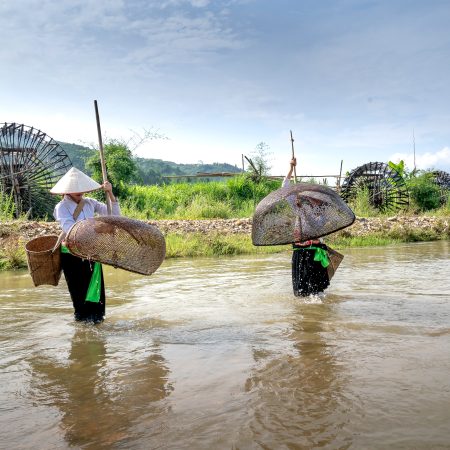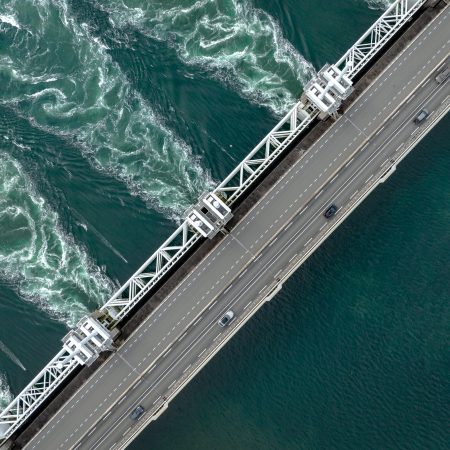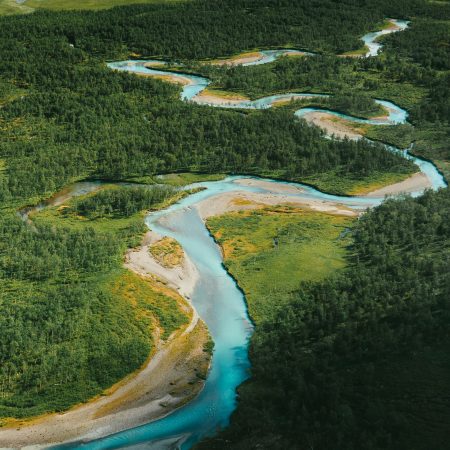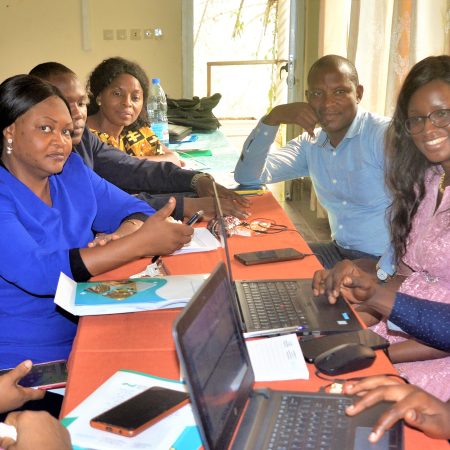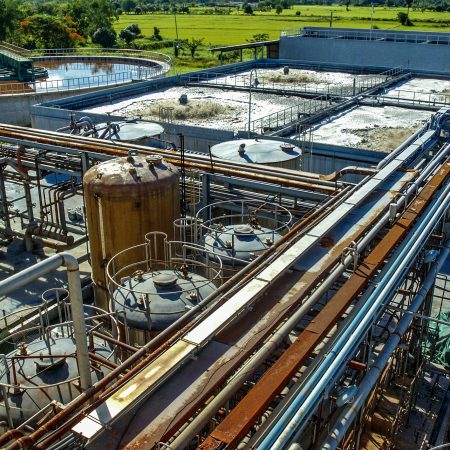Areas of work
GWP assisted governments in Honduras, Nicaragua, and China to monitor the implementation of IWRM, while in Tanzania, Panama, Zambia and Paraguay, GWP and its partners supported IWRM planning processes, generating commitments from multiple stakeholders to support their implementation. In Argentina, Kazakhstan, and Kenya, GWP, UNEP and UNDP Cap-Net finalised their pilot project on improving the protection of freshwater ecosystems (SDG 6.6.1), promoting the preparation of watershed-scale action plans based on environmental data from satellite-based Earth observations. The GWL Programme provided critical support to governments in seven low- and middle-income countries to become international water leadership models and demonstrate the socio-economic transformations that can be accomplished by making climate-resilient and gender-transformative water management and WASH services a political priority.
Key achievements included:
- Piloting the measurement of IWRM at the municipal level in Honduras and Nicaragua.
- Finalising the implementation of a pilot project started in 2020 in three countries (Argentina, Kazakhstan, Kenya) in collaboration with UNDP Cap-Net.
- Supporting the preparation of Country Water Investment Programmes in Malawi and Botswana.
- Supporting the Ministry of Water with the preparation of a study to establish the economic value of water to inform water-related decision-making in Tanzania.
Between 2020 and 2022, GWP supported 42 countries to access EUR 23.8 million in international climate finance. With Green Climate Fund (GCF) Readiness financing, GWP supported Somalia, Central African Republic, Eswatini, and Sri Lanka to prepare transformational, inclusive resilience-building water investments. In Zambia, a gender-responsive National Adaptation Plan and financing strategy are being developed through a multi-stakeholder engagement process.
The WMO-GWP joint programmes on flood and drought supported several countries to combat extreme events in 2022: Pakistan, Honduras, Armenia, Uzbekistan, Kosovo, North Macedonia, Albania, several countries in East Africa, and the West African Volta Basin.
Under the Continental Africa Water Investment Programme (AIP), led by an International High-Level Panel comprising current and former heads of states, GWP developed national water investment programmes worth USD 6 billion and USD 650 million in Zambia and Zanzibar respectively. GWP is now supporting over 20 countries to prepare similar investment programs with GCF, GEF, and other climate funds. The implementation of WACDEP-G also reached a mid-point with the programme influencing key processes in five countries.
Key achievements include:
- Supporting the mobilisation of USD 1.5 million under the GCF Project Preparation Facility for SADC countries.
- Providing critical support to governments in seven low- and middle-income countries to become international models for water leadership through the Global Water Leadership programme in a Changing Climate.
- Assisting the Central African Republic with the approval of the Readiness Country Proposal for a total value of USD 443,130.
- Launching of an updated edition of the Strategic Framework for WASH Climate Resilient Development at COP27 with UNICEF.
- Organising training for Amazon Cooperation Treaty Organization (ACTO) Member States to increase their understanding of the GCF, its different financing windows, and the opportunities available to them.
- Mobilising donations through our Area Water Partnerships in Pakistan to support the distribution of first aid kits and food in flood-affected areas of Pakistan.
- Supporting preparations for the adoption of the National Drought Management Plan in Honduras.
At the global level, knowledge and learning efforts continued in 2022 with new sessions of the ‘transboundary freshwater security governance training’. In Ecuador and Colombia, GWP provided training to incorporate a gender approach and non-discrimination of women in the management of transboundary water resources, and in the Orange-Senqu River Basin, learning exchanges were organised on integrated catchment management for Lesotho officials. Following the success of the Drin regional dialogue, GWP facilitated the coordination of Drin riparian countries in the preparation of a USD 7 million proposal submitted to GEF UNDP, while also supporting the adhesion of Cameroon to the 1992 UNECE Convention on the Protection and Use of Transboundary Watercourses and International Lakes.
Key achievements include:
- Convening training for improved transboundary water investment and management for Africa.
- Providing training to incorporate a gender approach and non-discrimination of women in the management of transboundary water resources in Ecuador and Colombia.
- Facilitating the coordination of Drin riparian countries in the preparation of a USD 7 million proposal submitted to GEF UNDP.
- Supporting the adhesion of Cameroon to the 1992 UNECE Convention on the Protection and Use of Transboundary Watercourses and International Lakes.
In 2022, in partnership with Cap-Net and the Gender and Water Alliance, GWP launched the second edition of the Gender and Integrated Water Resources Management course, which aims to improve practitioners’ understanding of the benefits of integrating gender meaningfully through IWRM. The second edition of the course trained 211 participants, with an above-average completion rate of 39 percent. Conscious of the need to keep building internal capacity to support country requests for assistance to bring a gender transformative lens to policies and practice, GWP organised a training for GWP staff at global, regional, and country level looking at gender budgeting, with a focus on its applications to water policies.
Key achievements include:
- Building the capacity of stakeholders involved in the management of the Ocotepeque-Citala Aquifer in Central America on the inclusion of gender in public policy, resulting in the development of a seven-step practical tool.
- Providing Help-2-Others Water Wheels to water-scarce communities in the Cholistan Desert in Pakistan, increasing the involvement of the communities’ men in water collection.
- Training 200+ women and girls on good agroforestry practices in Cameroon in a bid to explore agroforestry as a sustainable means to reinforce climate resilience.
GWP’s engagement with youth continued growing in 2022 through the organisation of new regional chapters of the Water Academy for Youth (W.A.Y.) with the implementation of the programme in South Asia and Southeast Asia. Twenty young professionals were also trained through the eight-month capacity-building programme Youth for Water and Climate Programme, and 200 youths from 16 countries were selected to take part in the Youth Environmental Entrepreneurship programme to address water-related problems in Latin America.
Key achievements include:
- Providing an opportunity to young entrepreneurs to pitch innovative and impactful water-related projects as part of the Caribbean Water Entrepreneurs Shark Tank Competition.
- Establishing the new network Youth for Water & Peace which gathered youth from Armenia, Azerbaijan and Georgia.
The 2020-2025 global GWP Strategy sets the objective for the GWP Network to mobilise private sector engagement. At the global level, efforts continue to strengthen partnerships with the private sector, which materialised in 2022 with the election of the GWP Chair, Pablo Bereciartua, to join the Board of the Alliance for Water Stewardship. In parallel, GWP implemented a number of more localised engagements in partnership with the private sector, including in Eswatini, Uruguay, and in the Caribbean.
Key achievements include:
- Developing a private sector engagement action plan for the Ministry of Tourism and Environmental Affairs, National Designated Authority with the GCF, as part of the Eswatini GCF Readiness Project.
- Supporting the piloting of the measurement of industrial water footprint in Uruguay as part of the Blue Good Practices Programme in line with the ISO 14046 norm on Environmental management. The Chamber of Industry has now included the process as part of the services provided to enterprises in the country.

